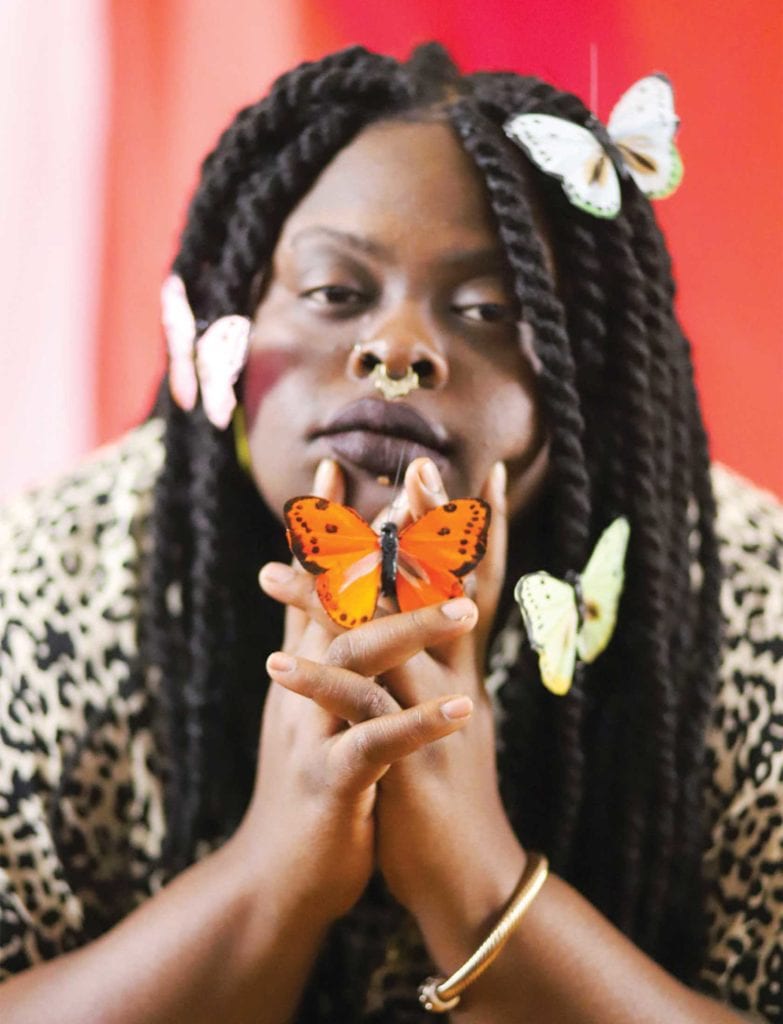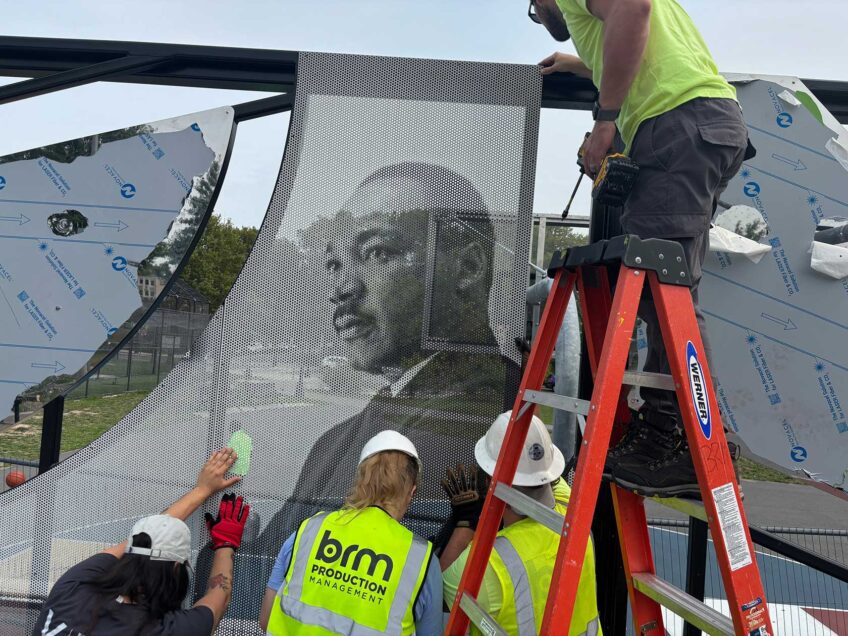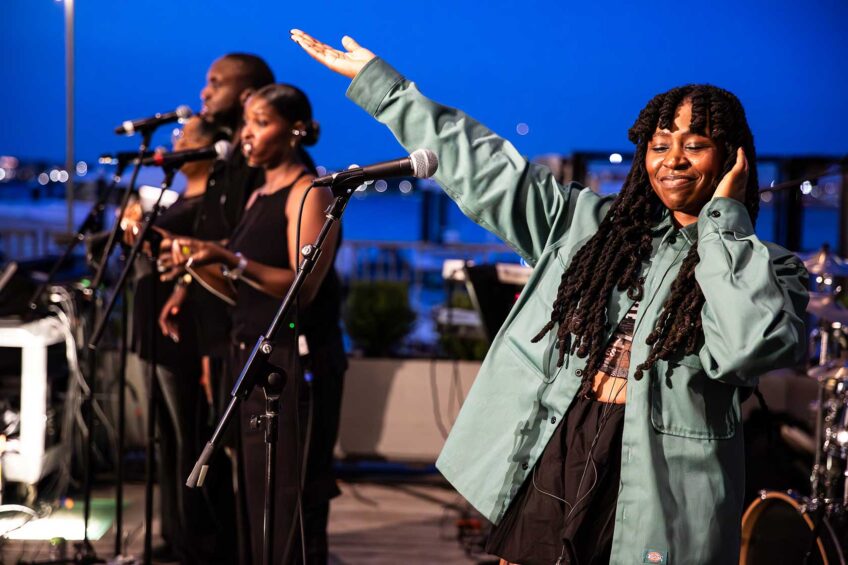
Boston Poet Laureate Porsha Olayiwola writes and performs poems rooted in Afro-futurism, magical realism and science fiction.
The Jamaica Plain resident is also artistic director of MassLEAP, a literary nonprofit serving youth, and co-founder of “House Slam,” a free poetry gathering that in normal times meets twice monthly at the Haley House Bakery Café in Roxbury.
As the city’s poet laureate, Olayiwola cultivates opportunities to engage people of all ages in writing poetry and works to increase the number of events that bring poets and audiences together. Pandemic or not, April — National Poetry Month — is no exception. On Friday, April 17 at 6 p.m., Olayiwola will hold a virtual session at www.instagram.com/wburartery on creating poems, and read from her new book, “i shimmer sometimes, too.”
Here, Olayiwola talks with the Banner about celebrating National Poetry Month during this time of physical distancing.
Q. How can Bostonians take part in National Poetry Month while staying home?
A. I love National Poetry Month. It’s a uniting entity for the poetry diaspora, a way for us do some of our work with the rest of world through events that engage folks who don’t usually identify themselves as poets. Virtual readings such as the April 17 event can bring people together around poetry and help us cope with this trauma.
How are you celebrating National Poetry Month?
My goal is to read poems every day for 30 minutes. Li Young Lee, in his poem “The Undressing,” is devastating in his word choice, yet it feels so soft. I’m reading fiction too. “An American Marriage,” by Tayari Jones, is fantastic. I cry when I read it.
National Poetry Month seems like a good time to honor artistic heroes and ancestors. Who are some of yours?
Nikki Giovanni’s “Love Poems” still moves me. Octavia Butler’s 1993 book “Parable of the Sower” is so well versed in humans that she writes the future. One of her characters runs for president with the motto “Make America great again.” I’ve been re-reading Toni Morrison as a form of research for her play “The Bluest Eye.” And June Jordan’s “A Poem About My Rights” has great authenticity. She can take something mundane, like taking a walk at night, and what that means as a woman, in a way I can identify with.
What are some of the projects you are working on?
I’ve been exploring the link between the black diaspora and water. Two years ago, I visited a slave port in Nigeria. We saw a well that slaves had to drink from, poisoned with a concoction by a conjure man that made them forget their memories during the Middle Passage.
Meanwhile, I’m feeling how good it is to be next to my partner and in contact with my friends and colleagues. Love is one of the major power tools we have to get through this.
What are you looking forward to doing when this physical distancing is over?
Having a picnic in a park.
Learn more at www.porshaolayiwola.com






